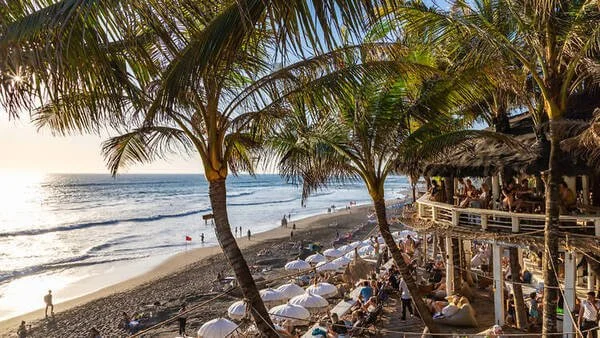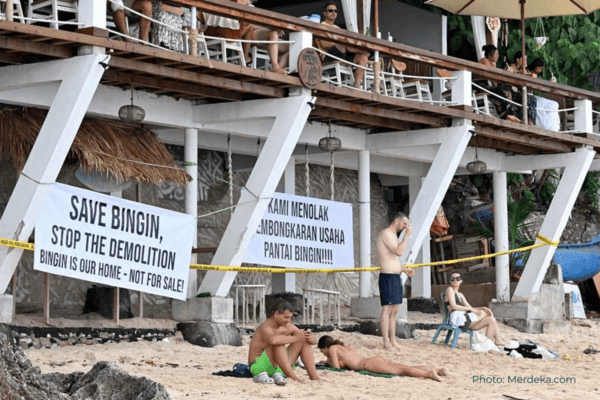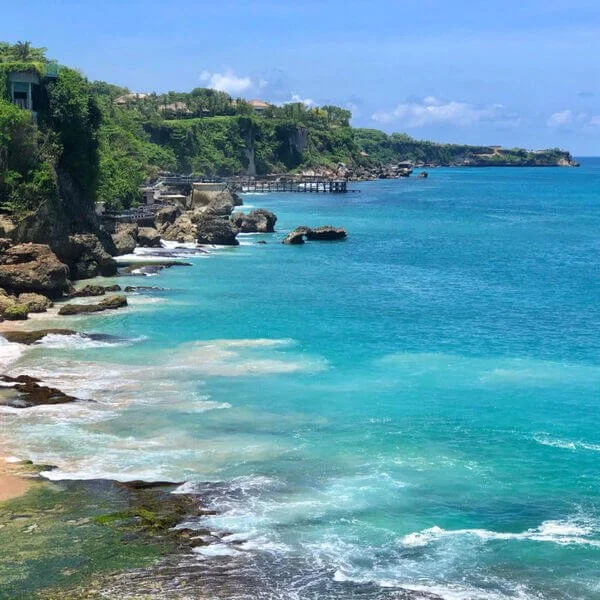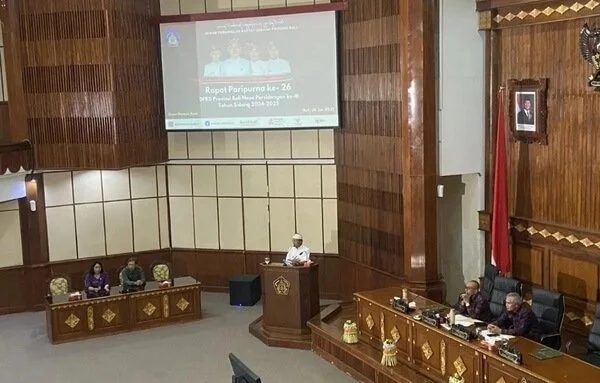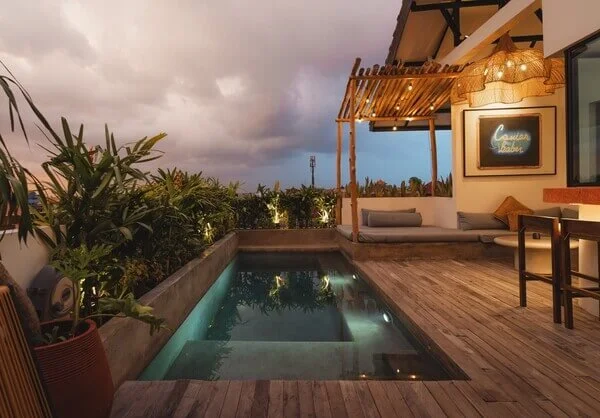In a move that marks a seismic shift in how Bali approaches tourism and development, Governor Wayan Koster has announced a set of bold new policies that will come into force starting 2025: Bali will no longer build at all costs. At Kaltimber, we say “let’s see”.
From land-use restrictions to tourism tax reforms, this is the beginning of what the provincial government calls the 100-Year Bali Development Plan, designed to protect the island from overexploitation, support more equitable growth across regencies, and reshape the future of tourism on the island.
For those of us in the sustainable building world — especially those working with reclaimed and responsibly sourced materials — these changes are not just welcome, they’re a long time coming.
No More Permits for Tourism Facilities on Productive Land
At the heart of the reform is a new regulation: no more building permits for tourism-related facilities on Bali’s productive land. That means land used for agriculture, cultural heritage, or natural preservation can no longer be transformed into hotels, resorts, restaurants, or entertainment venues. The policy is publicly seen as firm when looking above the surface — with nearly 50 illegal or non-compliant structures at Bingin Beach already demolished and more identified for action. However it remains to be seen about what the future will be.
This is not a symbolic gesture. It's a strategic decision to protect Bali’s remaining green spaces, support long-term food security, and reduce the strain placed on infrastructure and ecosystems by unchecked development. It’s also a recognition that tourism must evolve — and that true sustainability means building less, not more.
Cautious Optimism — and a Need for Clear Action
At Kaltimber, we welcome this shift. But we also approach it with measured skepticism.
This isn’t the first time development bans or environmental protection policies have been announced in Bali — and too often, they’ve been quietly shelved, diluted, or simply never enforced. The lack of a detailed implementation roadmap, combined with political realities and economic pressures, leaves us wondering whether this latest plan will follow the same path.
We hope this isn’t the case. The intent is strong, the timing is right, and the consequences of inaction are increasingly visible. But hope alone isn't policy — and without consistent execution and real enforcement, these ambitions may remain just that: ambitions.
Still, the fact that this discussion is now mainstream — that we’re even talking about banning new development in favor of protecting land — is a sign of progress in itself.
Development Shift: From "Build More" to "Use What Exists"
Under this new direction, six regencies — Karangasem, Bangli, Buleleng, Klungkung, Jembrana, and Tabanan — have agreed to stop encouraging new hotel and restaurant construction altogether. These areas, many of them still rich in natural beauty and cultural authenticity, will instead be supported by tax redistribution from Bali’s tourism hubs like Badung and Gianyar. In other words, these lesser-visited regencies will benefit from tourism without being consumed by it.
What replaces all this “new building”? Quite simply: adaptive reuse, restoration, and reclaimed materials. And that’s where companies like Kaltimber step in.
A Moment Made for Reclaimed Wood
At Kaltimber, we’ve always operated on the principle that no new tree should be cut to build something beautiful. Our wood comes exclusively from existing structures that are genuinely set for demolition — barns, bridges, old homes, warehouses. We don’t harvest, and we don’t compromise.
What we offer is character-rich, legally sourced reclaimed wood — teak, ironwood, and more — that fits perfectly into this new era of thoughtful development. Whether it’s decking, flooring, architectural beams, or door frames, our materials are ideal for:
Renovating or restoring existing structures within the new legal framework is a specialty of our friends from ReVive Bali.
Adding sustainable value to homes, villas, or businesses
Meeting increasingly strict environmental and planning regulations
We’re not just supplying materials — we’re supplying solutions to help builders, architects, and property owners align with Bali’s evolving vision.
Tourism Tax Reform: More Equity, More Accountability
Another major piece of the puzzle is the upcoming Bali Tourism Tax Levy reform, scheduled to be implemented in August 2025. The IDR 150,000 tax per tourist (about USD 10) will be made easier to collect, with hotels, restaurants, and attractions acting as payment portals. Businesses will receive a 3% service fee for participating, ensuring fair compensation for handling the tax.
Critically, 10% of the tourism tax collected in Bali’s most developed areas (Denpasar, Badung, Gianyar, and Tabanan) will now be redirected to the six less-developed regencies — funding infrastructure and productive projects like road repair, not private luxury.
This redistribution is about more than fairness. It’s about decentralizing tourism, helping smaller communities thrive without turning them into the next Canggu, and respecting the soul of Bali by slowing down expansion where it’s no longer sustainable.
Reclaimed Is No Longer Niche — It’s Necessary
This policy shift confirms something we at Kaltimber have believed for years: the future of building in Bali (and beyond) is not in new land grabs, speculative resorts, or endless construction. It’s in respecting the materials and stories that already exist.
It’s in using what’s been built before, and building better with it — smarter, cleaner, and with long-term resilience in mind.
If you’re planning a project in Bali in the coming years, these new policies will shape what’s possible. Reclaimed wood won’t just be a nice-to-have — it may be the only legal, viable, and sustainable option for new construction in protected areas.
And if you're not sure how to navigate this new terrain? That’s what we’re here for.
Ready to build in Bali’s new era?
Talk to us about using reclaimed wood — and building something that truly belongs here.
📩 Contact us or visit our yard to see what’s possible.

